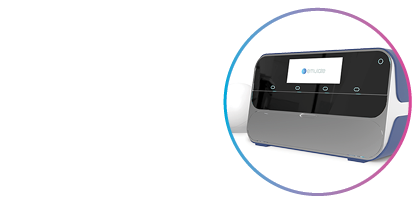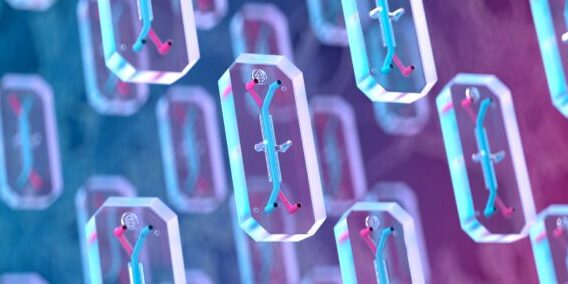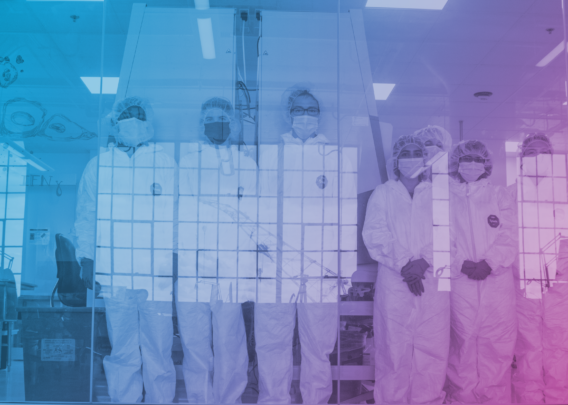In our first Emulator Exclusive, Chaff talks about falling in love with scientific research, Organ-on-a-Chip technology, and Emulate’s culture of collaboration and education.
Growing up, what sparked your interest in science and, more specifically, biology?
JC: I originally became interested in science and biology in grade school and decided to pursue a career in medicine. But then, when I went to Northeastern for college, I had the chance to take part in some lab-based co-ops, which was awesome. It also allowed me to figure out which kind of work I enjoyed and which I did not. I worked at an ecology lab with termites, for example, which was not for me. Through these experiences, I really fell in love with being on the bench, being in the lab, doing a lot of hands-on work. I just thought it was super interesting to work with these cell lines, to do different assays and readouts and things like that. My work in the labs put me on the path for molecular research, which eventually led to Emulate.
What sorts of important things did you learn while in college, trying to get co-ops, as a budding biologist?
JC: One of the biggest things I learned while trying to get co-ops was the importance, especially in this field, of understanding cell culture. If you have that base, you can learn a lot. I think most jobs get pretty specific to what they’re doing on site, and you learn a lot in the lab. But, if you have a basic understanding of what cell culture is and how it works, you can really apply it anywhere you go. One of my most educational co-ops was at Sanofi’s protein purification lab. It was really a great learning experience for me to know what it’s like to be in a big, high-pressure lab handling multiple cell lines, doing multiple assays, and really getting independent work. So, I think it was an opportunity that I really liked and thrived in, and it helped to set me up for success throughout the rest of college and at Emulate.
Once you graduated college and started looking for jobs, what made you choose Emulate?
JC: After college, when I was looking for jobs, I was a little unsure about where exactly I wanted to end up. I think what really drew me to Emulate was how cool the technology was. It was something I had never really heard of nor had much of a background in. You don’t learn about Organ-on-a-Chip technology in college, you learn about animal testing and things along those lines. I knew that I didn’t want to be working in a lab where I was dealing with mice and other animal tests—that didn’t suit me. I also have a big fear of blood, so I wanted to avoid working with that. Then, I found out about Emulate’s Organ-on-a-Chip technology and spoke with a few people about the company. I just thought it was an amazing project and that the company seemed great. To be able to get more accurate results through testing with Organ-Chips instead of animals was super novel and something I really wanted to be a part of.
Talk about the Emulate culture in general. How is it, and was it helpful to you?
JC: When I was looking for jobs, I was really looking for startups because I like the culture where everyone is part of one big mission—knowing what everyone’s up to, what they’re working for. That’s something I see here at Emulate. We have such an amazing group of super smart scientists who are driven and passionate about what they do. Coming in and not knowing what an Organ-Chip is or what it can do is a little stressful, but Emulate is a place where you can ask questions, shadow scientists during experiments, and watch along for studies. It’s a very collaborative environment that fosters a community of growth and curiosity. Alongside that, I can consider most of my coworkers to be real friends. Sure, we’re working in the lab a lot, but we can also connect on different levels than just the work. It’s something I really appreciate—it makes me excited to come to work every day.
What particular aspects of Organ-on-a-Chip technology do you find interesting or important, and what do you see its impact being?
JC: Personally, I just think it’s so interesting that you can take one chip, have so many different applications, and get so many different readouts and endpoints—whether you’re looking at the Liver-Chip, the Kidney-Chip, the Brain-Chip, or any other model. So, I think it’s truly a very novel and innovative technology that I enjoy working with. As I said, there’s obviously some kind of learning curve in getting up to speed with it, but I think it’s a very translatable technology. It’s also a success on our field scientists’ part that people can take this technology and cater it to what they specifically need in their lab.
To wrap up, what are some ongoing developments that you’re most excited about?
JC: One thing I’m excited about is our adeno-associated virus (AAV) transduction application, where we were able to validate a robust and reproducible workflow for evaluating AAV-based gene therapies on the Liver-Chip. This means that our customers will be able to test their own constructs and vectors to determine if they are safe as well as if they efficiently deliver gene therapy to liver cells. We have had a lot of customers running AAV studies that we have brought in house, so our work in this campaign will provide tremendous value for them and help them accelerate AAV design faster than they could with animal models.
Finally, what are some things you like to do outside of the lab?
JC: Outside of the lab, I like to do yoga—although, sometimes, it can be hard fitting it into my schedule. I also love traveling, which is something Emulate has been able to help me with. I also like cooking and being with friends and family. Nothing too crazy.




